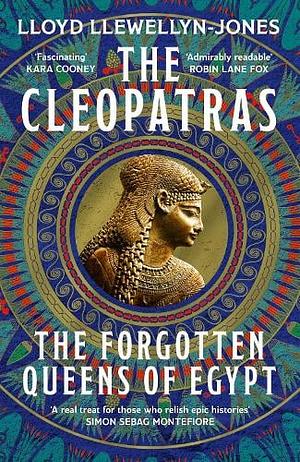
The Cleopatras: The Forgotten Queens of Egypt
Genres: History, Non-fictionPages: 384
Rating:

Synopsis:Cleopatra: lover, seductress, and Egypt's greatest queen. A woman more myth than history, immortalized in poetry, drama, music, art, and film. She captivated Julius Caesar and Marc Antony, the two greatest Romans of the day, and died in a blaze of glory, with an asp clasped to her breast - or so the legend tells us.
But the real-life story of the historical Cleopatra VII is even more compelling. She was the last of seven Cleopatras who ruled Egypt before it was subsumed into the Roman Empire. The seven Cleopatras were the powerhouses of the Ptolemaic Dynasty, the Macedonian family who ruled Egypt after Alexander the Great. Emulating the practices of the gods, the Cleopatras married their full-blood brothers and dominated the normally patriarchal world of politics and warfare. These extraordinary women keep a close grip on power in the wealthiest country of the ancient world.
Each of the seven Cleopatras wielded absolute power. Their ruthless, single-minded, focus on dominance - generation after generation - resulted in extraordinary acts of betrayal, violence, and murder in the most malfunctional dynasty in history.
Professor Lloyd Llewellyn-Jones offers fresh and powerful insight into the real story of the Cleopatras, and the beguiling and tragic legend of the last queen of Egypt.
I really enjoyed Lloyd Llewellyn-Jones’ The Cleopatras, which discusses and follows not just “the” Cleopatra, Cleopatra VII, but the whole female line of the Ptolemy dynasty, filling out the background that made the famous Cleopatra who she was, and introducing a wider audience to some pretty incredible women.
It’s a fascinating history, and a part of Egyptian history that I was never that keen on as a kid and thus never learned a lot about (I preferred the period before the Romans started meddling). Llewellyn-Jones manages to write in a way that keeps things fresh and interesting and mostly helps keep things straight, despite the plethora of repeated names. I found it a little distracting and weird when he translated Ptolemy IX Soter II’s nickname (Lathyros) and then just called him “Chickpea” all the time. It was kinda… cutifying? And I’m not sure any of the Ptolemys deserve to be cutified, I’ll be honest, even as they were fascinating people as described here.
The main drawback is that there aren’t numbered references, and sometimes he doesn’t even explain the nature of the evidence he’s using to decide something. For example, he asserts that “Chickpea” and Cleopatra IV were a love match — why? He never explains, and you wouldn’t expect so from the way they later behave.
So it’s all thorough and fascinating, but perhaps not one to take too seriously if you’re looking to research. It does have a section of “useful materials” and a bibliography, though, so the sources are relatively available to follow up (if not quite as conveniently as with numbered footnotes).
Rating: 4/5
